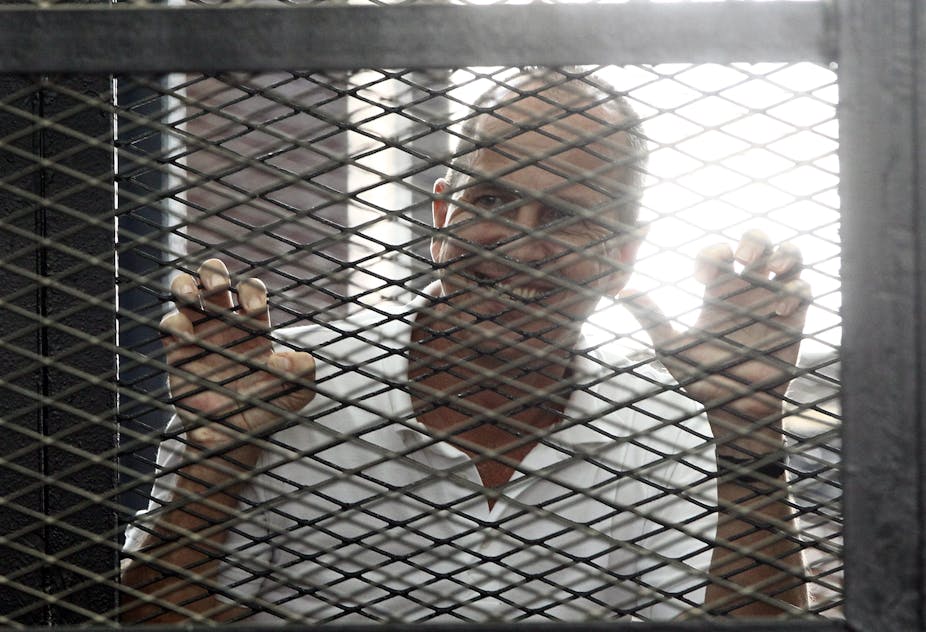The release of Peter Greste from an Egyptian prison is surprising only in that it happened without too much telegraphing of the exact date. A deportation-style resolution of the case had been on the cards for months, and Australia’s Foreign Minister Julie Bishop had been expecting the announcement since before Christmas. That Greste is now free and on his way home is the best sort of news.
Spending 400 days in an Egyptian prison and enduring a confusing legal stoush would have been distressing for Greste and his co-accused. It’s no secret that Egyptian President Abdel Fattah al-Sisi wished that things might have been handled differently. The show trial and its procedure cast Egypt’s new regime in a bad light internationally, despite the fact that it played well at home. That hurt the government, which was looking to bolster its credentials with the West. Once in the legal gears, though, the case had to progress to its inevitable conclusion.
However, al-Sisi very shrewdly took a position of letting the courts do their work. Stepping in and releasing everyone by presidential fiat would have invited criticism about the rule of law and the power of the head of state – particularly since former president Mohamed Morsi had himself been deposed partly upon his own tendency to declare himself above the courts.
So while al-Sisi publicly voiced his wish that the journalists could have been deported rather than put on trial, the courts got on with jailing them. Behind the scenes, though, there would have been pressure to come up with a legally structured solution that allowed everyone to save face.
That reached its conclusion today. At least for Peter.
The Egyptian dilemma
The trial, sentencing and release of Peter Greste serve to highlight the delicate state of Egyptian affairs in the years since Hosni Mubarak was swept from office. As events of last week showed, Egypt is facing a stubborn insurgency in the northern Sinai. This is nothing of the scale of what’s occurring in Iraq or Yemen, but it is worrying for a nation where absolute control was maintained for decades.
Such a rebellion causes a dilemma for al-Sisi. On one hand he needs to clamp down on the opposing ideology, as evidenced by the Al Jazeera case and the mass trials of Muslim Brotherhood supporters. On the other hand, he needs the continued financial and diplomatic support of the West and other Arab nations to fight this insurgency.
The Greste case typified this dilemma as the new regime took power and tried to juggle all these competing tensions. The shadow of Qatar and its ideological affinity for groups like the Muslim Brotherhood was also present.
Beyond this nest of tangled interests, though, the case illustrates the wider issue of press freedom in the Middle East. From Saudi bloggers to Japanese hostages, shedding light on the region can be a dangerous profession.
According to the World Press Freedom Index compiled by Reporters Without Borders, the Middle East and North Africa regions rank very poorly. The cluster of countries with the lowest ranking of “Very serious situation” is noticeable on the map. The link between freedom of the press and robust democracy is not given much airtime in the region.
So we should welcome Peter Greste back home to Australia and celebrate his release. But in doing so, remember that he is one of the lucky ones.

